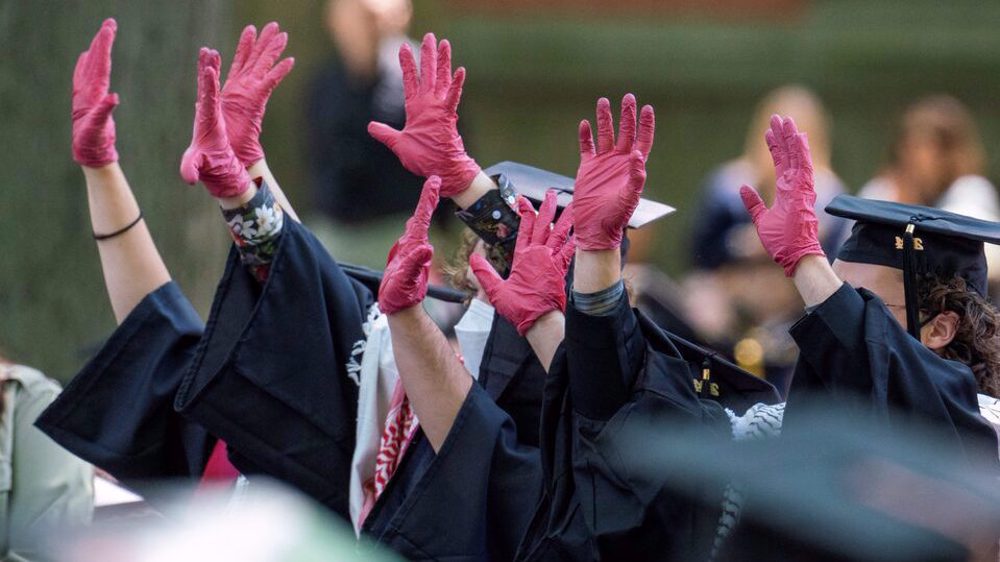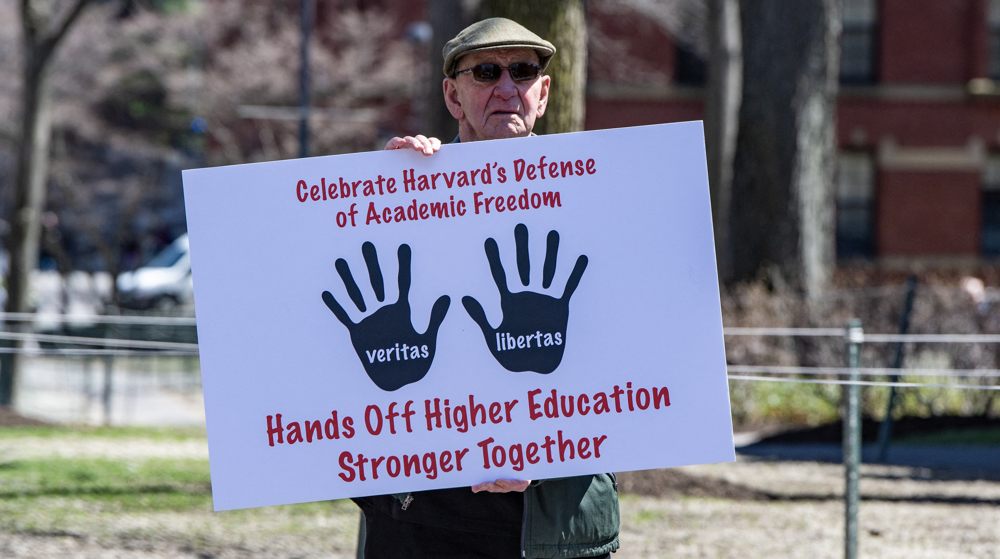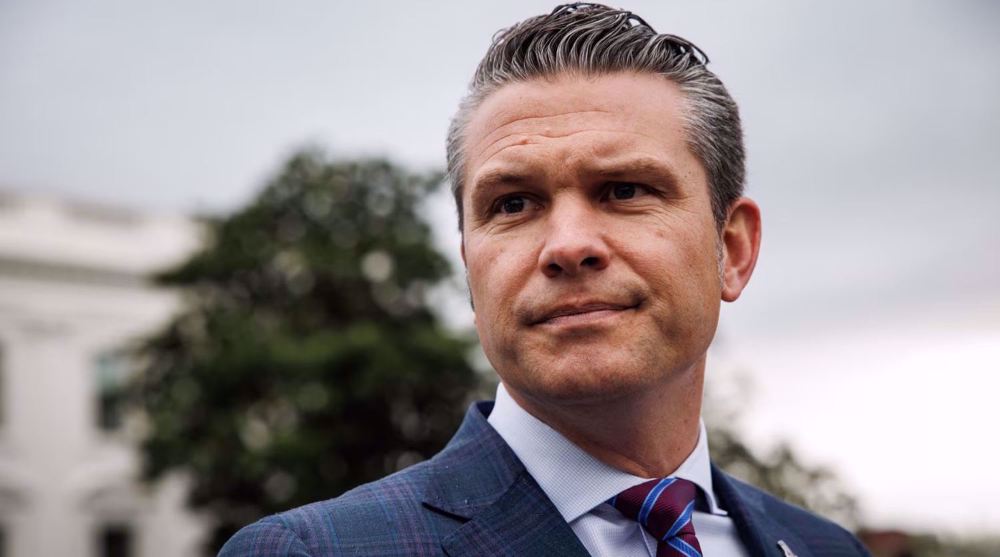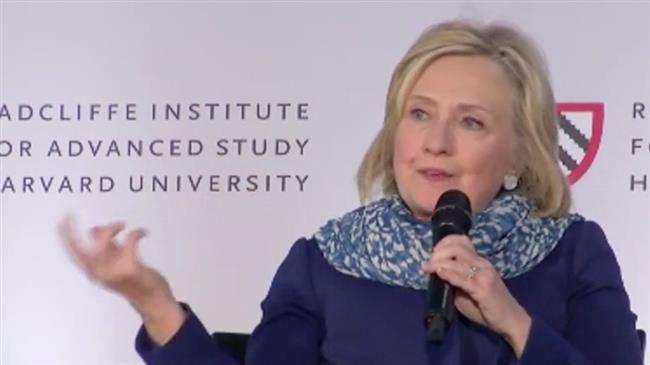Clinton warns US democracy in crisis, in apparent swipe at Trump
Former US first lady and secretary of state Hillary Clinton has warned that American democracy is in crisis and the country is headed towards authoritarianism, an apparent swipe at President Donald Trump, whom she ran against in the 2016 presidential election.
"Right now we are living through a crisis in our democracy," Clinton said in a speech on Friday at Harvard University.
"There are certainly not tanks in the street, but what is happening today goes to the heart of who we are as a nation. And I say this not as a Democrat who lost an election, but an American afraid of losing a country."
Clinton did not mention President Trump by name, but it was clear to whom she was referring when she said there are "leaders in our country who blatantly incite people with hateful rhetoric, who stoke fear of change, who see the world in zero-sum terms."
"Attempting to erase the line between fact and fiction, truth and an alternative reality, is a core feature of authoritarianism," Clinton warned.
Speaking last week at Yale University, Clinton made a similar warning, saying the United States was going through a “full-fledged crisis in our democracy."
Clinton also told graduating Yale students that she still regrets losing the 2016 presidential election race against Trump.
The anti-secrecy website dealt heavy blows to Hillary’s election campaign by leaking hacked emails about the inner works of the Democratic Party.
Clinton’s warning about Trump’s threat to American democracy was echoed earlier this month by another top US diplomat, former secretary of state Rex Tillerson.
Tillerson, who was fired by Trump in March after little more than a year on the job, said that a crisis involving truthfulness and integrity is threatening US democracy.
“If we do not as Americans confront the crisis of ethics and integrity in our society and among our leaders in both the public and private sector — and regrettably at times even the nonprofit sector — then American democracy as we know it is entering its twilight years,” Tillerson said during his address to graduates at the military college in Lexington, Virginia.
The US president has frequently said or tweeted statements not backed up by fact. For example, he insisted, despite evidence to the contrary, that the crowd at his January 2017 inauguration was bigger than at predecessor Barack Obama’s.
More recently, Trump at first disputed that he was aware of a $130,000 payment made by his personal attorney, Michael Cohen, to porn star Stormy Daniels, who alleges an affair with Trump. But in an ethics disclosure on Wednesday, Trump acknowledged repaying Cohen more than $100,000 for an undisclosed purpose.

Students camp out at Yale to protest Israeli minister Ben-Gvir’s visit

Over 220 US academic leaders slam Trump crackdown on universities

After second Signalgate scandal, Democrats call for Hegseth’s resignation
Iran supports any measure to strengthen peace, tranquility: Pezeshkian
Iran, Russia agree to transfer gas via Azerbaijan: Minister
VIDEO | US joins global protest day to demand Israel lift 8-week siege
HTS gunmen, allied militants kill over dozen Alawites in Syria’s Homs
VIDEO | Press TV's news headlines
VIDEO | Muscat’s 3rd round of indirect talks between Iran, US
Iran’s foreign minister says ‘satisfied’ with progress in talks with US
MSF: 70% of burn victims in Gaza are children, little chance of recovery








 This makes it easy to access the Press TV website
This makes it easy to access the Press TV website